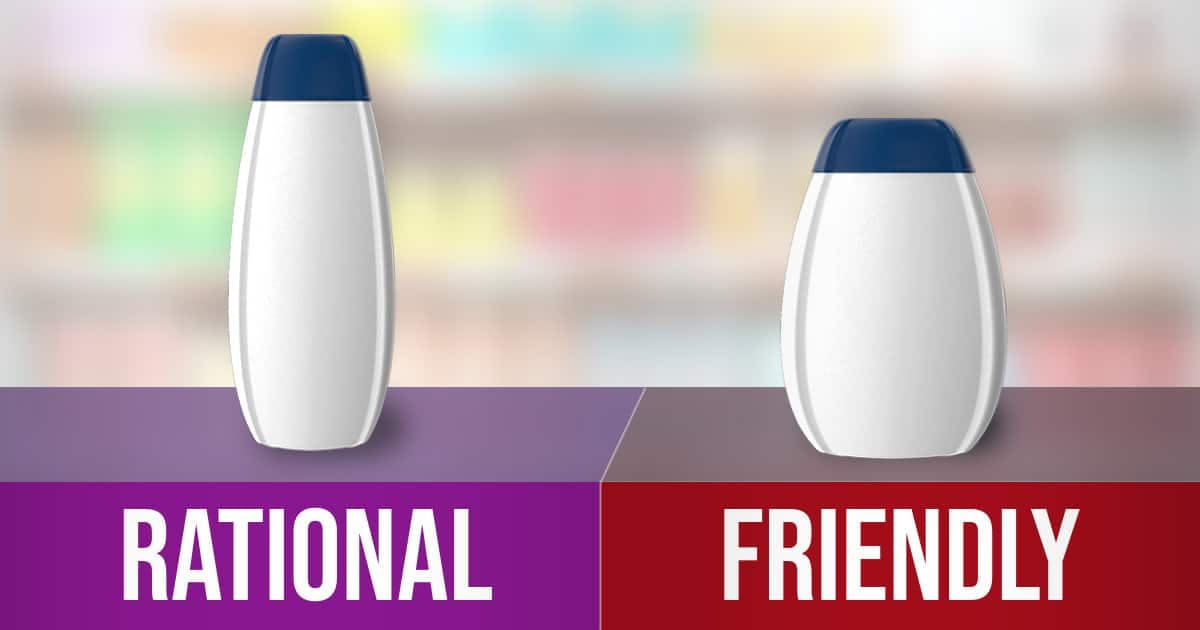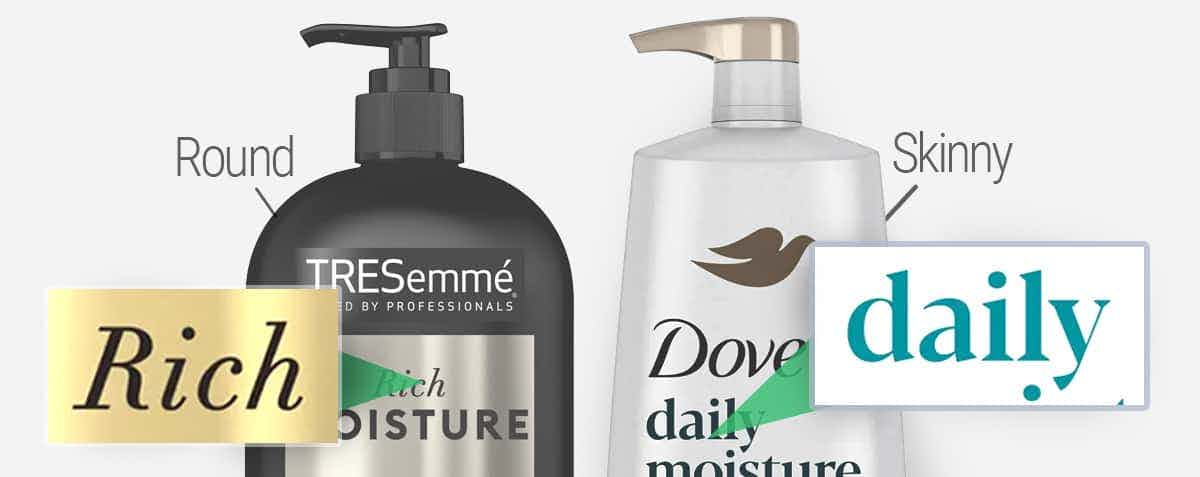Round Products Seem Friendly
Tall and skinny products seem rational, while round products seem friendly and emotionally gratifying.

Overview
What's the best shape for your product?
It depends. Do customers want:
- ...a rational solution?
- ...an enjoyable experience?
Each mindset prefers a different shape.
Why: Stereotype Conflation
We confuse products with people.
In one study, people were asked to give products (e.g., lamps, perfumes) to other people.
Interestingly, they chose round products for heavier recipients because their brain confused this shared roundness (Vallen et al., 2019).
Products seem humanlike. And naturally, they inherit traits from people they resemble.
Like what? Well, there's a stereotype model warmth-competence on which we judge people, including different body weights:
- Heavy people seem friendly (e.g., jolly stereotype).
- Tall and skinny people seem competent.
Therefore, products inherit these traits when they resemble these body shapes (Shi, Mai, & Mo, 2023).
For practicality, let's refer to these traits as emotional and rational.
Example: Shampoo
Launching a shampoo brand?
Customers preferred:
- Round bottles with emotional copy (e.g., soothing, moist, etc.)
- Skinny bottles with rational copy (e.g., remove dandruff, etc.)
I searched for shampoos on Target, and most listings seemed consistent.
- Round bottles were emotional (e.g., rich moisture)
- Skinny bottles were purposeful (e.g., daily moisture).

Rational is Angular
Did you notice the skinny shampoo was also rectangular?
In daily conversations, we describe rationality in terms of angularity:
- Smart people are "sharp"
- Useful statements "make a point"
- Clever people "cut through" BS
Coincidence? Maybe.
But sensory metaphors often emerge in language because they resemble the way in which our brain is conceptualizing these abstract ideas.
So I would group tall, skinny, and angular in the same bucket.
Takeaways
- Create Separate Brands. Consider launching round products for emotional customers, yet tall products for rational customers. Or a balanced version if you need both segments.
- Also Happens With Prices. Rational products perform better with sharp prices (e.g., $39.57), while emotional products perform better with round prices (e.g., $40; Wadhwa & Zhang, 2015). Though another study failed to replicate it (Harms, Genau, Meschede, & Beauducel, 2018).
Other New Stuff
- Bonding Over Experiences - You feel more kinship with somebody who bought a similar item, especially when it was experiential (vs. material).
- Smartphone Use Reduces Trust - Participants were less apt to trust strangers in a game if they had used their phone beforehand.
- AI Interactions Trigger Immoral Behavior - We feel less empathy due to AI's lack of emotions, which can numb the anticipated guilt from questionable decisions. You can reduce this numbness by injecting AI tools with humanlike traits.